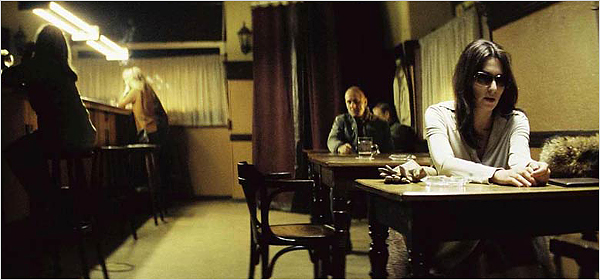But the Stasi’s biggest concern was East Berlin’s artistic community, and the possibility that one of these sketchy bohemians would create an unflattering portrait of life in the GDR, tossing an embarrassing wrench into the state’s propaganda machine. Toward that end, a lifer Stasi agent named Wiesler (Ulrich Mühe) decides to wiretap the apartment of a celebrated playwright (Sebastian Koch) and his actress girlfriend (über-sexy Martina Gedeck). As Wieser huddles in a dark room surrounded by tape recorders and microphones, he listens in on the couple’s tender and tempestuous moments, and has a surprising reaction. Their kindness and basic human decency strike a strong contrast to the thick-necked cruelty of his ambitious fellow agents, and Wiesler finds himself becoming more of a protector than a prosecutor to the beleaguered couple.
Tuesday, March 15, 2016
The Lives of Others Turns 10
The Lives of Others Turns 10
But the Stasi’s biggest concern was East Berlin’s artistic community, and the possibility that one of these sketchy bohemians would create an unflattering portrait of life in the GDR, tossing an embarrassing wrench into the state’s propaganda machine. Toward that end, a lifer Stasi agent named Wiesler (Ulrich Mühe) decides to wiretap the apartment of a celebrated playwright (Sebastian Koch) and his actress girlfriend (über-sexy Martina Gedeck). As Wieser huddles in a dark room surrounded by tape recorders and microphones, he listens in on the couple’s tender and tempestuous moments, and has a surprising reaction. Their kindness and basic human decency strike a strong contrast to the thick-necked cruelty of his ambitious fellow agents, and Wiesler finds himself becoming more of a protector than a prosecutor to the beleaguered couple.
Subscribe to:
Posts (Atom)
Roma (2018) ✭✭✭✭✭
Alfonso Cuarón’s directorial career has dealt with everything from updated Dickens ( Great Expectations ) to twisted coming of age ( Y Tu Ma...

-
In the quiet town of Bishopville, South Carolina, nestled amid the Baptist church and Waffle House, lies one of the world’s foremost topiary...
-
While going through some boxes at my dad's house, I found this copy of TV Guide from September 14, 1985. It's the special fall previ...










